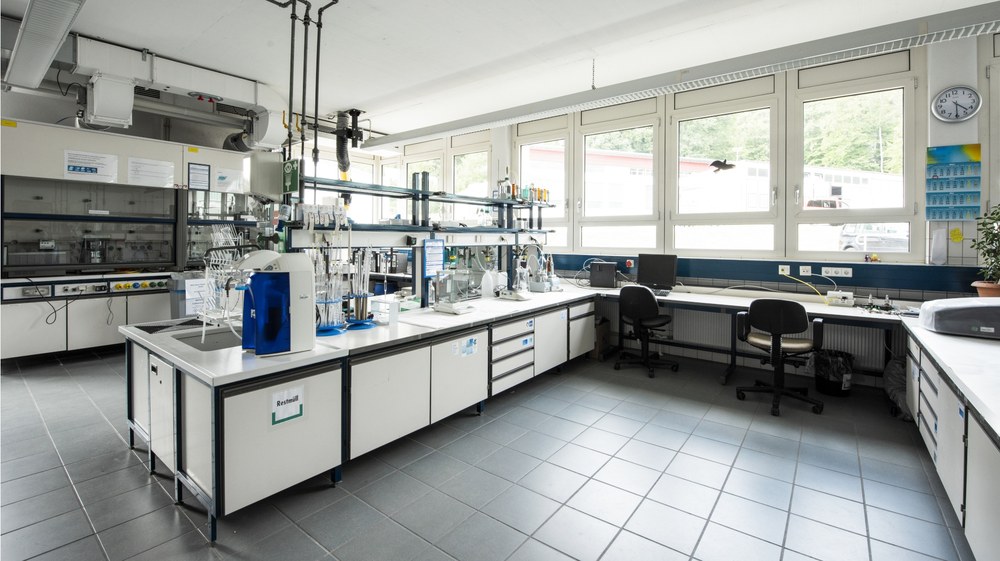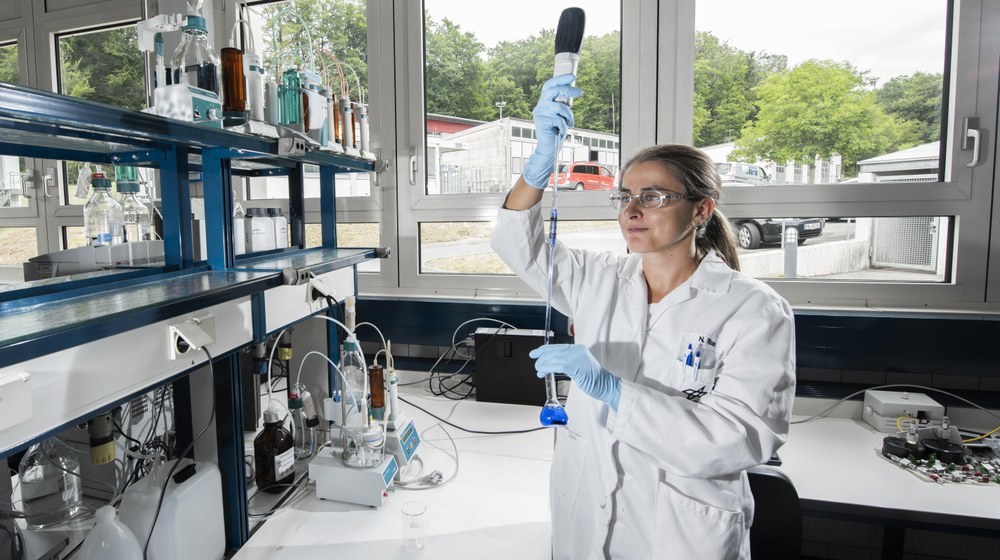NeoFuels
As part of the DLR NeoFuels project, more environmentally friendly fuels have been developed, produced and tested on the test bench.



In space flight, propellants based on hydrazines are used, among other things, as standard for attitude and control regulation in spacecraft. Like the oxidizer dinitrogen tetroxide (NTO) used for this purpose, these propellants are highly corrosive and toxic. These properties lead to difficult handling and the associated high costs. The search for alternatives to these currently used propellant combinations is a key focus of the Chemical Propellant Technology department. Current work ranges from the development and testing of spontaneously igniting propellant combinations to the synthesis of nanoscale functional materials and their testing in dual-fuel systems or components.
With the chemical synthesis, characterization and subsequent combustion tests of selected propellant combinations on a laboratory scale, all steps in the pre-development of novel green propellants and chemical technologies are run through. State-of-the-art experimental methods and analysis options such as inert gas techniques, spectroscopic and chromatographic measuring procedures are used for this purpose. The resulting findings are discussed in the form of publications, conference papers or presentations to an international specialist audience.
The department's portfolio includes the following areas of work:
The training and promotion of young scientists is an essential part of the department's philosophy. We welcome unsolicited applications from students of chemistry or related natural sciences for internships or theses!
